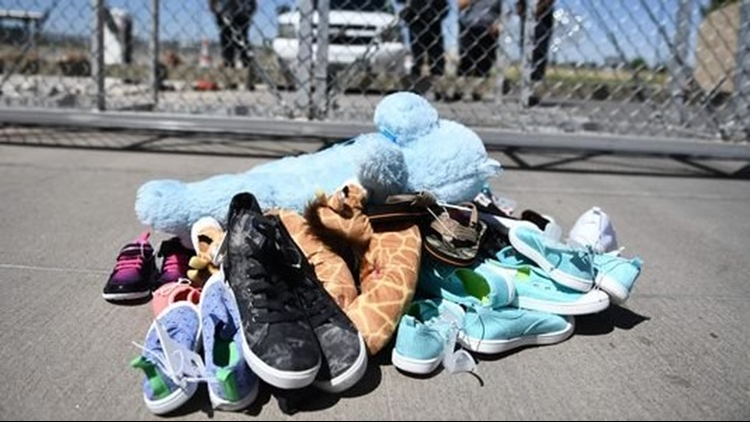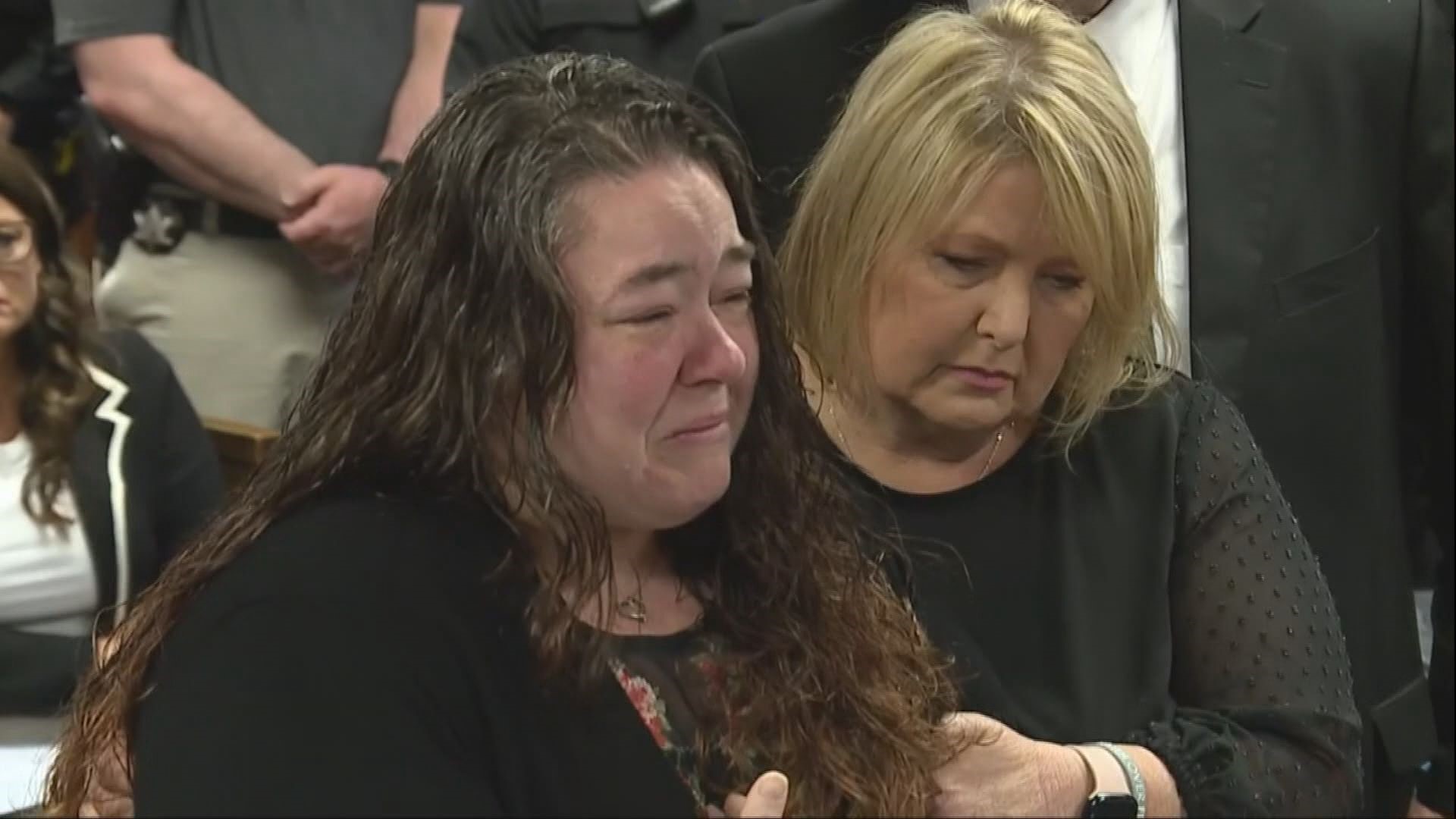Weeks before the Trump administration intensified its zero-tolerance border policy, two baby boys arrived in Grand Rapids.
One was a 4-month-old from Romania; the other a 9-month-old from Mexico. Both children were detained at the Southern border of the United States, along with family members during the federal crackdown on illegal immigration.
Within days, the two babies wound up on airplanes and in foster care in western Michigan. One baby still has his mother with him. The other is alone, without family.
This is a glimpse into the world of two misplaced infants, whose stories first appeared in the Free Press last week on the same day President Donald Trump signed an executive order ending his policy of separating children from their parents at the U.S. border.
Since then, the Free Press has obtained the details that help explain how these two babies, now 8 months old and 11 months old, ended up being flown across the country to live with strangers. They are among 50 separated children who have landed in foster care in Michigan over the last several months.
This, according to U.S. Customs and Border Protection, the agency that first came into contact with the babies, is what led them here:
The journey begins
It was Feb. 11, about 10:30 p.m., when a Romanian father showed up at the U.S. border with his 4-month-old son. They had come by foot from Mexico, across the Brownsville & Matamoros International Bridge.
They both had Romanian passports. The 34-year-old father said he was seeking asylum — which border officials refer to as the "magic word," as it generally gets people entry into the United States temporarily.
"We pretty much have to take their word for it. You have to respect the person's claim," said CBP spokesman and U.S. Border Patrol Agent Salvador Zamora, who has been with the agency 23 years and has extensive experience in border security and immigration enforcement.
In the Romanian father's case, the man had only his passport, no other documents, which triggered more questions. Upon inspection, border agents discovered he had an "extensive criminal history" involving fraud and robbery in France.
"That warrants an arrest," Zamora said, noting the father was set up for removal proceedings.
The baby, internal government records show, was processed using "tender age" protocol and transported to a processing center in McAllen, Texas. Once there, the baby was turned over to the care of the U.S. Department of Health and Human Services, which arranged for the baby to be transported to Michigan.
On Valentine's Day, three days after arriving in the U.S. with his father, the baby ended up in the care of Bethany Christian Services, which helped find a foster family for the infant in the Grand Rapids area.
The goal is to reunite the child with his father once his immigration case is resolved, though officials have said reunification with the mother overseas is a possibility. But her whereabouts are yet unknown.
A different path
Meanwhile, the mother and infant from Mexico present a different set of circumstances, and could be spared deportation because of the mother's age, and because she has no criminal record.
"These are two textbook cases of what is the right way and what is the wrong way to come into this country," Zamora said.
The mother of the Mexican infant was just 17 when she crossed the bridge by foot with her 9-month-old son. It was about 7 p.m. April 19 when the Mexican teen appeared before border agents in Brownsville, Texas. She said she feared for her life and was seeking political asylum.
The young woman had no passport. There was a man with her, though it's not known whether he was the father of the child. They were considered a family unit, but the man was detained. The young mother and child were transferred to a processing center and prepared for a long night of travel.
The next day, the mother and child were placed in the care of Bethany Christian Services and flown to Grand Rapids on a commercial jet, accompanied by ICE personnel who oversee Enforcement and Removal Operations. The government's goal, border officials said, is to transfer children from a processing center to a shelter within 72 hours or less. Both mother and child were placed in foster care.
"The mom and child were kept together and transferred together," Zamora said, noting she had no criminal history and there was "no endangerment concern for the child. They are held together as a family awaiting the political asylum review."
This is not the case for the Romanian man, whose infant was taken from him.
"Here we have two uniquely different cases of political asylum requests," Zamora said. "In one case, the father has a criminal history ... in the second case the mother is kept together with the child because she did not misrepresent herself and did not have a criminal record."
The problem with the Romanian father, he noted, was he did have a criminal record — and he tried to hide it.
"When someone breaks the law in between the port of entry or at the port of entry, that is a federal crime and the parents are separated from their children," Zamora said, noting this is not a novel approach. "The separating (children) from parents — from a law enforcement standpoint — is something that happens day in and day out in our country."
The practice, however, has stirred public outrage and intense criticism, so much that it ultimately prompted Trump to adjust the policy so that children are not automatically separated from parents. The zero-tolerance immigration policy, however, still exists. And the border agents will enforce it, Zamora said, noting CBP's mission is to protect the borders and facilitate legal trade.
"At the end of the day, the men and women of CBP are humans. They are mothers. and fathers who take on this responsibility seriously. Their hearts break when children are exploited, taken advantage of or abused." Zamora said. "Crossing the border illegally is a crime. Our position is firm, but is fair."
On the separation front, he stressed: "It's a challenge to keep families together while enacting the zero-tolerance policy."
What happens to the kids
Currently, more than 2,300 immigrant children remain apart from their families, separated during six weeks in April and May under Trump's zero-tolerance border policy.
Though the president issued an executive order Wednesday ending family separations, there is no word on what is going to happen to the children still living apart from their families.
Bethany Christian Services, one of two Michigan agencies that has contracts with the government to foster these children, has said the goal is reunification. The nonprofit currently has 58 unaccompanied minor immigrants, including eight who came to the United States on their own; the other 50 arrived at the border with family.
Their fate remains unknown.
"While keeping families together is the right thing to do, keeping families in detention facilities is still extremely traumatic and harmful for children," Bethany Christian Services stated. "It is still too soon to determine how the order will impact vulnerable families and children, but we remain committed to their safety and well-being, and keeping families together."
The fate of the children in Michigan has stirred political debate.
On Thursday, Gov. Rick Snyder said that while he's glad immigrant families are no longer being separated at the border, there's little the state can do to help reunite the children already brought to Michigan with their parents.
"The foster agencies contract directly with the federal government," Snyder said, adding the state doesn't have a " direct role in that" or "get knowledge of what the federal government is doing."
Some lawmakers aren't buying it and are calling on the state to do something, arguing that MDHHS has regulatory oversight over the foster care system in Michigan and has an obligation to help the children in it.
"The Department of Health and Human Services not only has the ability but the obligation to exercise its abilities to make sure these children are reunited with their parents. And yet they are doing nothing," said state Rep. Tim Greimel, D-Auburn Hills, who wrote a letter, signed by four other legislators, to Snyder urging him to take action.
"These children were put into the foster care system in Michigan by Bethany Christian Services, (which) itself regularly works hand in hand with MHHS to administer the state’s unaccompanied minor refugee program," Greimel said. "It’s really disingenuous for the State of Michigan’s department of health and human services and for the governor's office to assert that there is nothing they can do here."
Contact Tresa Baldas: tbaldas@freepress.com. Follow her on Twitter @Tbaldas.
►Make it easy to keep up to date with more stories like this. Download the WZZM 13 app now.
Have a news tip? Email news@wzzm13.com, visit our Facebook page or Twitter.



